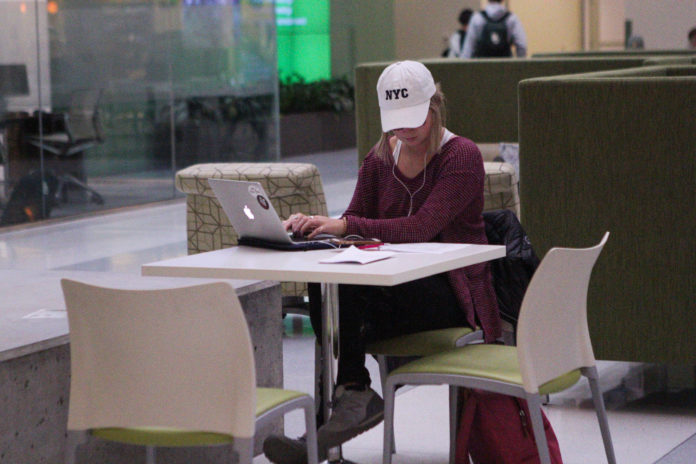
By Lucy Ruscitto | Staff Writer
With nearly all colleges across the nation’s decision to go completely online for the remainder of the spring 2020 semester, a lot of unforeseen issues have arisen out of new programs implemented in online classrooms — like Zoom hacking.
Dubbed “zoombombing” by the New York Times, this interruption of meetings on the interactive video chat platform, Zoom, has been not only reported in academic university settings, but personal as well, such as calls with friends and family for game nights or catching up.
Since Zoom’s founding in 2011, the conferencing site and application has gained more traction due to the recent implications of COVID-19.
Businesses, extended families, friends, organizations and educational institutions who used to meet face-to-face, have resorted to this program in order to keep contact with one another.
San Clemente, Calif. senior Bridget Sjoberg, editor-in-chief of the Baylor Lariat, said she found hackers herself when she hosted a meeting via Zoom.
“It was one of the Lariat’s all-staff meetings. All the different Lariat desks [were] on a Zoom call at the same time, trying to learn information on how to move forward with everything that’s going on with coronavirus,” Sjoberg said.
Sjoberg said about more than halfway through the meeting, she started hearing a voice shouting that was not part of the conference, and then multiple voices that weren’t originally on the call.
“Where the voice was coming from was a name we didn’t recognize … the voice was yelling sometimes things you couldn’t even decipher,” Sjoberg said. “It was really … jarring since nobody really knew what was happening and nobody expected it.”
Even large, national corporations, such as Chipotle, have run into issues with hackers on the platform.
Last week, with hundreds employees and musician Lauv on the call, a member of the meeting began to play pornography for all on the public conference to see.
Vice president of digital at Chipotle Tressie Lieberman said in an email that she had believed initially that Zoom was a safe place to host the meeting for the employees and guests, but after the incident with the hackers, made the switch.
“We moved our latest performances to a different platform,” Lieberman said.
After her staff meeting incident, Sjoberg said she thought about looking into other interactive video call programs, too, but her lack of knowledge in this new area would hinder her.
“I wasn’t even familiar with Zoom before this whole thing started,” Sjoberg said. “If it happens again or more times, I might consider switching to a different video platform.”
These interruptions have caused organizations all over the country to deal with unwarranted and lewd displays they did not expect.
Sjoberg said she noticed a definite change in tone of the participants during the meeting immediately after the zoombombers intruded.
“I just ended [the call] as quickly as I could,” Sjoberg said. “I ended up sending another Zoom link afterward and we kind of picked up where we left off, but I feel like everyone was still just thinking about it. It kind of puts a halt on everything.”
Despite Zoom requiring a 10 to 11 digit entry and meeting ID number or a link sent directly to the user, hackers still have the ability to crash meetings they weren’t invited to.
Sjoberg said she would like platforms like Zoom to put more security checkpoints in place to protect its users.
“Sometimes I can click on a Zoom link without even having a password and it lets me in,” Sjoberg said. “Hopefully they can just put more security measures in place and kind of recognize how much it’s being used now.”
For now, Yaniv Balmas, head of cyber security at Check Point, said there is a temporary solution in an interview with Forbes.
“For sensitive meetings, set a password. But nobody ever does. This is the main takeaway from this research,” Balmas said.





